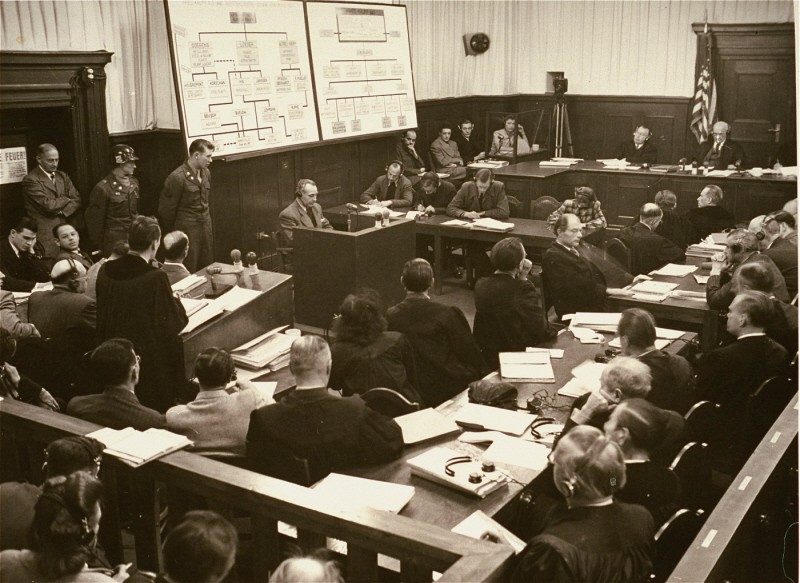
Subsequent Nuremberg Proceedings, Case #10: The Krupp Case
After World War II ended, the Allies established courts in each of their occupied zones in Germany to prosecute German officials for their role in the commission of war crimes, crimes against peace, and crimes against humanity. American military tribunals in Nuremberg, Germany, presided over 12 major proceedings against leading German industrialists, military figures, SS perpetrators, and others. Included among these Subsequent Nuremberg Trials was the Krupp Case.
United States v. Alfried Krupp, et al
On November 12, 1947, the US Military Government for Germany created Military Tribunal III-A in order to try the Krupp Case. This was Case #10 of the Subsequent Nuremberg Proceedings. The 12 defendants in this case, all officials of the Krupp industrial concern, had been indicted on August 16. The lead defendant, Alfried Krupp, and eight other defendants, had been members or deputy members of Krupp's Managing Board, while the three others had held similar high-ranking positions.
The indictment charged the defendants with committing the following crimes:
- crimes against peace by participating in the planning and waging of wars of aggression and wars in violation of international treaties
- war crimes and crimes against humanity by participating in the plunder and spoliation of public and private property, devastation, and exploitation against countries under German occupation, causing the suffering of millions
- war crimes and crimes against humanity by participating in the murder, extermination, enslavement, deportation, imprisonment, torture, and use for slave labor of civilians who came under German control, German nationals, and prisoners of war
- participating in a common plan or conspiracy to commit crimes against peace.
All of the defendants were charged under counts one, three, and four, and all but two were charged under count two, but counts one and four were dismissed by the tribunal soon after the completion of the prosecution's case because of lack of evidence. After the defendants were arraigned on November 17, the trial began on December 8, finishing on June 30, 1948.
The tribunal returned its judgment on July 31, finding six of the ten defendants charged under count two guilty, and all but one of the defendants guilty under count three. That one defendant, Karl Heinrich Pfirsch, was acquitted of all charges. The sentences were handed down the same day, with the 11 guilty defendants receiving prison terms ranging from 2 to 12 years. In almost all instances, these sentences were commuted to time served.
Critical Thinking Questions
- Beyond the verdicts, what impact can trials have?
- How were various professions involved in implementing Nazi policies and ideology? What lessons can be considered for contemporary professionals?
- How have some professional codes of conduct changed following the Holocaust?

